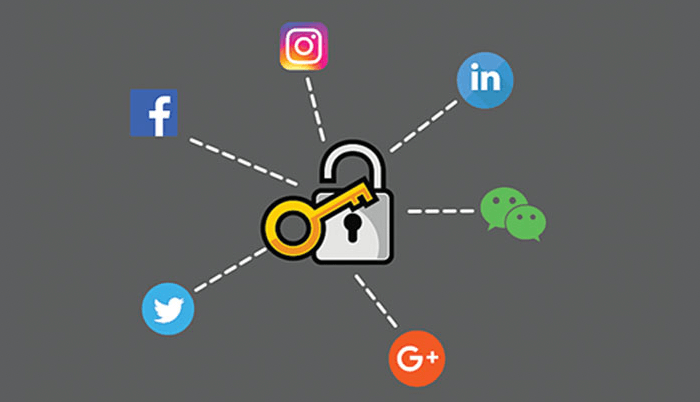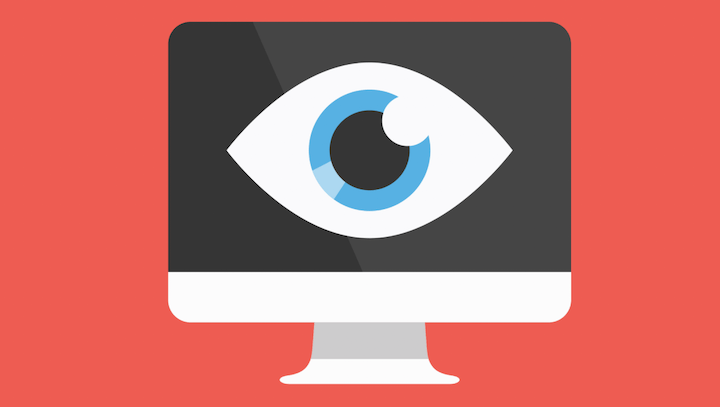The Dark Side of Social Media: Privacy Concerns and Solutions

In our interconnected world, social media platforms have become the town squares of the digital age, a place where individuals, businesses, and governments interact. However, the same digital arena that brings us closer can also expose us to potential privacy risks. This article delves into these risks and provides solutions for individuals and companies alike, focusing on privacy issues that arise from social network usage.
Understanding the Concept of Privacy in Social Platforms
Today, confidentiality takes on a more complex definition than its conventional interpretation. When discussing privacy within social media, we’re referring to users’ control over their info. The concept encompasses regulating what type of information is available online, who can view it, and how it can be used or manipulated by third parties.
The privacy paradox presents itself when users continue to share vast amounts of personal info on social platforms despite expressing concerns about confidentiality. These sites, by design, encourage people to convey personalized content, from simple status updates to private photos, location check-ins, and even political affiliations. This user-generated data is a gold mine of information, precious to advertisers looking for targeted marketing opportunities.
However, this is where privacy becomes compromised in the digital world. While being a user, one can be lured into a false sense of security without fully understanding the extent of data exposure that occurs with every post, like, or share. But we don’t know when complex algorithms are used behind the scenes to collect and analyze user behavior.
This information is used to create comprehensive profiles in the name of personalization and convenience. This process is mainly invisible to the average social network user. Yet, it has significant implications, especially when this info falls into the wrong hands or is used manipulatively for spreading disinformation or influencing democratic processes.
Additionally, social platforms may even share user data with third parties without the user’s explicit knowledge or consent. This third-party sharing can lead to significant data breaches, especially when these external entities do not uphold stringent data protection practices.
In essence, while social platforms provide us with a platform for connectivity and expression, it simultaneously places our confidentiality under potential threat. The balance between utility and privacy is delicate, and it is increasingly important to understand this dynamic as we navigate the digital world.
The Dark Side: Major Concerns in Social Media

As people continue integrating social networks into everyday lives, it is crucial to highlight users’ primary confidentiality concerns.
Data Harvesting and Its Implications
One of the primary concerns is data harvesting. It is a process where social platforms collect, store, and analyze user information for various purposes, the most common being targeted advertising. The breadth and depth of info collected can range from basic demographics to more specific information like personal interests, political leanings, and purchasing habits. The implications are significant. Users often lose control of their data, and the misuse of this information can lead to substantial privacy breaches.
Risks of Identity Theft and Cyberstalking
Identity theft and cyberstalking pose significant threats to social platform users. With so much personal data readily available, unscrupulous individuals can impersonate others, steal sensitive information, or engage in online harassment. Given the vast reach of the platforms, these threats can have severe consequences, from financial loss to mental distress.
The Problem of “Dossier” Creation and Behavioral Tracking
Another growing concern is the creation of user “dossiers.” These are detailed profiles formed based on a user’s activity, interactions, and behaviors on social networks. Online advertisers can later use these dossiers to predict future behaviors, preferences, and even movements. It allows them to show more targeted content and advertising. Many people perceive the ability of these platforms to track and anticipate user behavior as an invasion of privacy.
Invasion of Confidentiality Through Location Tracking
Location tracking is a feature that can quickly turn into an issue. Social media platforms often encourage users to “check in” or tag their locations. While this can seem harmless, consistent location tracking can disclose a user’s routine or whereabouts at any given time, posing significant confidentiality and safety concerns.
The Issue of Third-Party Data Sharing
Finally, third-party information sharing is a widespread practice where user data is shared with other organizations. It can range from advertisers to analytic companies and often occurs without explicit user consent. The issue lies in the lack of transparency and control; users often have no idea who has their information or how it’s used, which leads to potential data leakages.
Case Studies of Privacy Breaches

Understanding the practical implications of privacy concerns requires a look at some of the notable instances of confidentiality breaches.
Notable Instances of Privacy Breaches
One of the most infamous cases that involved Facebook was the Cambridge Analytica scandal. In 2018, it was acknowledged that Cambridge Analytica, a political data firm, had harvested personal information from millions of Facebook users without their consent. Later, the organization used this data to construct psychological profiles and deliver targeted political ads, potentially influencing the 2016 U.S. Presidential Election and the Brexit referendum.
Another significant breach occurred with LinkedIn in 2021. It involved scraping information from approximately 500 million profiles to later put it up for sale online. The leaked data included sensitive information such as full names, email addresses, and other professional details.
The Aftermath and the Public Response to These Breaches
The aftermath of such breaches invariably includes a public outcry and loss of trust in the implicated platforms. Following the Cambridge Analytica scandal, Facebook faced severe backlash, resulting in plummeting stock prices and a global movement encouraging users to delete their accounts (#DeleteFacebook). It also prompted several investigations leading to significant changes in Facebook’s data privacy policies.
Similarly, the LinkedIn data breach was a stark reminder of the fragility of personal information online, leading to calls for stricter data protection laws and better confidentiality measures from social media platforms.
These instances underscore the pressing need for robust security measures, regulatory oversight, and public education about data confidentiality and online behavior. They show that while these platforms have immense potential to connect us, they also have the potential to compromise personal privacy on an unprecedented scale.
The Regulatory Response: Legal and Policy Measures

As discussions of the question intensify, regulatory bodies worldwide establish laws and policies to protect user confidentiality online.
Overview of Existing Regulations and Laws Protecting Online Privacy
One of the most comprehensive current regulations in the EU is the General Data Protection Regulation (GDPR). Enforced in May 2018, it requires companies to secure the personal information of EU residents for transactions within EU member states. It also regulates the process of transmitting personal info outside the EU. Fundamental principles of the GDPR include explicit consent for data collection, the right to access personal data, and the right to delete it.
As for the US, the CCPA, or California Consumer Privacy Act, lets California residents more control over their personal information. It allows them to know about and opt out of the sale of personal information, access their data, request a business to delete their personal information, and avoid discrimination against them for exercising their rights.
Assessment of Effectiveness
Although these regulatory measures represent significant steps toward protecting user privacy, their effectiveness varies.
- The GDPR has had substantial influence, prompting companies worldwide to adjust their data protection policies. However, challenges persist. The regulation is often criticized for its complexity and being resource-intensive for businesses to implement. Additionally, enforcement remains inconsistent across EU member states.
- While being a landmark US law, CCPA applies only to California residents and businesses that meet specific criteria. This state-specific legislation illustrates the fragmented approach to privacy regulation in the US, leaving many users without robust information protection.
In both cases, many users are not adequately informed of their rights as regulated by these laws. It limits their ability to take proactive measures to protect their confidentiality. Moreover, these regulations mainly focus on reactive measures, granting rights after data has been collected rather than preventing unnecessary data collection in the first place.
In summary, while these regulatory responses mark progress, there’s still a long way to go to provide comprehensive, easy-to-understand, and enforceable privacy protection for all users.
Solutions and Best Practices for Protecting Confidentiality

As we wait for better enforcement of laws, several measures can help protect privacy on social media.
The Role of Tech Companies
Tech companies play a vital role in ensuring user confidentiality. From incorporating privacy-by-design principles to offering transparent data policies, companies need to prioritize privacy as a fundamental feature, not an afterthought. For instance, default settings should gear maximum confidentiality. Similarly, tech companies should clearly inform their users about any data collection practices.
Importance of Privacy Settings and Wys to Use Them Effectively
Individual users also have a part to play. Privacy settings on social networks are the user’s primary defense against unwarranted information sharing. Ensuring these settings are correctly configured can significantly reduce the risk of confidentiality infringement. For instance, limiting who can see your posts, disabling location services, and restricting third-party access to information can all help protect your privacy.
VPNs, Encryption, and Other Technological Solutions
Technological tools like VPNs and encryption can provide an added layer of security. VPNs mask a user’s IP address, preventing unwanted tracking of online activities. End-to-end encryption, like that employed by WhatsApp, ensures that only the sender and recipient can read a message.
Educating Users About Risks and Preventive Measures
Finally, education is critical. Many users are unaware of the confidentiality risks associated with social network use or how their information is used and monetized. Increasing public awareness about these issues and educating users on confidentiality settings, technological tools, and safe online behaviors can significantly enhance protection.
Future of Privacy in Social Media

The future of privacy is an evolving landscape influenced by a combination of factors, including regulatory changes, technological innovations, and public awareness.
Predictions and Trends for Privacy in Social Networks
Given the heightened awareness and the rising concern around the issues, we expect increased demand for privacy-friendly platforms. Users are increasingly favoring platforms that respect their confidentiality and give them control over their information.
Regulation is likely to evolve to catch up with the changing digital landscape. We can anticipate more countries adopting comprehensive data protection laws similar to the GDPR, bringing a more unified and stringent approach to data privacy.
In addition, we predict a shift towards more transparent data practices. It includes more explicit consent forms, easily understandable policies, and a move away from pervasive third-party data sharing.
Role of Innovation and Technology in Enhancing Confidentiality
Technological novelties will play a pivotal role in shaping the future of privacy. We will likely see advancements in privacy-enhancing technologies, such as improved encryption methods, decentralized data storage, and anonymization techniques.
One promising development is the use of blockchain technology for managing personal information. Blockchain’s decentralized nature allows individuals to have greater control over their data, deciding who can access it and when.
Artificial Intelligence (AI) also presents opportunities for enhancing confidentiality, such as automating privacy settings based on user behavior or detecting and alerting about potential dangers.
However, it’s important to note that while technology can provide powerful tools for enhancing privacy, it also presents new challenges. Advanced AI and machine learning techniques can be used for more potent data analysis and surveillance, creating a continuous push and pull between privacy and innovation.
Conclusion
Privacy issues are an inherent aspect of the social media experience, ranging from information collection practices to third-party data sharing, all of which carry potential risks for individuals and communities. However, one can mitigate these challenges through a holistic approach encompassing regulatory interventions, technological strategies like proxy security and VPNs, and user awareness. The evolution of privacy will depend on this multi-pronged strategy, advocating for technological advancements and progressive regulations to protect user information in the vast digital public space.
